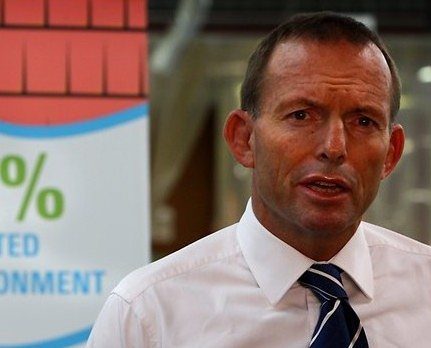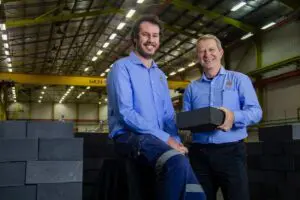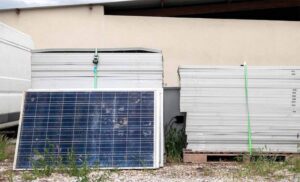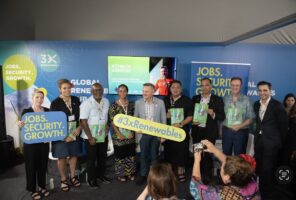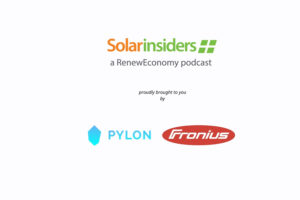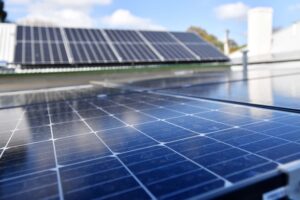While Tony Abbott was in South Australia assuring the state’s Party faithful that his 2030 emissions target was both economically and environmentally responsible, an interesting thing was happening over in the nation’s west. In the Western Australian electorate of Canning – a marginal seat incorporating south-east metropolitan Perth and rural areas in the east and south – the Australian Solar Council launched its latest campaign, on the weekend, urging constituents to “vote solar” in the upcoming by-election.

The ASC’s plan is to capitalise on the fact that, according to council analysis, 50 per cent of Canning homes have either solar PV or solar hot water on their roofs. The broader plan, however, is to ignite a nation-wide debate on renewable energy, increasing the pressure on an increasingly unpopular, coal-loving Prime Minister.

“Tony Abbott’s reputation as the most radical, anti-solar Prime Minister in Australia’s history will not go down well with Canning voters,” said ASC chief John Grimes in a statement on the weekend.
“Half of Canning voters have solar, the other half want to slash their power bills with solar and Tony Abbott continues to attack all these voters.”
The new push by the ASC comes at a bad time for Abbott, with the latest polls predicting the Coalition is facing a 36-seat wipeout in the next federal election.
The poll, by Fairfax-Ipsos, found that had an election been held on the weekend, the Coalition would have been swept from office on the back of a 7.5 per cent swing. It also revealed that Abbott was trailing both Opposition leader Bill Shorten – Labor lead the Coalition 54-46% on two-party-preferred, according to the poll – as well as Malcolm Turnbull, in his own party, as the most preferred Liberal leader and PM (41% to 15%).
As the ASC’s Grimes notes, another poll, the recent Essential Poll we reported on here, showed 65 per cent support for a bipartisan policy target 50 per cent renewables by 2030, and indicated a lack of adequate policy support for renewables, in general, could be a vote-changer.
“Tony Abbott’s recent comment that Australia has ‘more than enough’ renewable energy stands in stark contrast with Labor’s commitment to at least 50 per cent renewables by 2030 and the Greens’ pledge for even stronger renewables targets,” Grimes said.
Back to Canning – which is going to a vote after the sudden death in July of elected Liberal Party member, Don Randall – the ASC said on the weekend it would run a strong campaign during the by-election, urging voters to “Vote to Save Money, Vote to Save Solar” and put the Liberal Party last.
According to Grimes, the households and businesses of Canning – 28 per cent of which had cut their electricity bills via installing solar PV – could be a “potent political force”.
“If we can’t change the Government’s policy, then we need to change the leader,” Grimes said. “This is a golden opportunity to give Tony Abbott the kick that he deserves. He is leading the Liberal Party and Australia in the wrong direction. He needs to embrace good solar policy.
“Our objective is to encourage the Liberal Party to change its leader, to encourage them to promote a leader who has a positive vision for renewables and solar and if that’s the outcome, it’s job done.”
And it’s not as far-fetched as it might sound. At the start of this year, Queensland’s Liberal Premier Campbell Newman was unceremoniously dumped by voters after a term in government characterised by a concerted attack on solar power.
In the lead-up to that election, a similar campaign led by the ASC and backed by other lobby groups, including Solar Citizens, targeted key marginal seats with the same solar message.
Like Abbott, Newman had bet his state’s economy on a rosy future for coal – namely, the development of the Galilee Basin mega-coal mine – while undercutting the solar industry at almost every turn.
It was a loosing bet for Newman, who was replaced by Labor Premier Annastacia Palaszczuk – who unveiled her party’s solar and energy policy a week before the election – while the hugely controversial Galilee coal project remains on the drawing board, looking less and less likely to go ahead.
Whether Abbott’s coal vs renewables approach to policy will have the same political outcome for him remains to be seen. As we wrote last week, there are some, albeit negligible signs the Coalition might be coming around to the importance of solar and battery storage technologies, in the effort to cut emissions and transform the nation’s energy market.
Abbott announces new rooftop coal-fired power station scheme. http://t.co/eQ43PcUfip pic.twitter.com/LIJcfhhAid
— RottnestWindTurbine (@Rottoturbine) August 16, 2015
In the meantime, however, he seems to be staying on message about the importance of coal:
“One of the things that will benefit the world in the years and decades to come is if there is a greater use of Australian coal,” Abbott said last Tuesday. “High-quality Australian coal, as opposed to low-quality local coal, is going to help other countries to, if not reduce their emissions, then certainly reduce their emissions intensity.”

